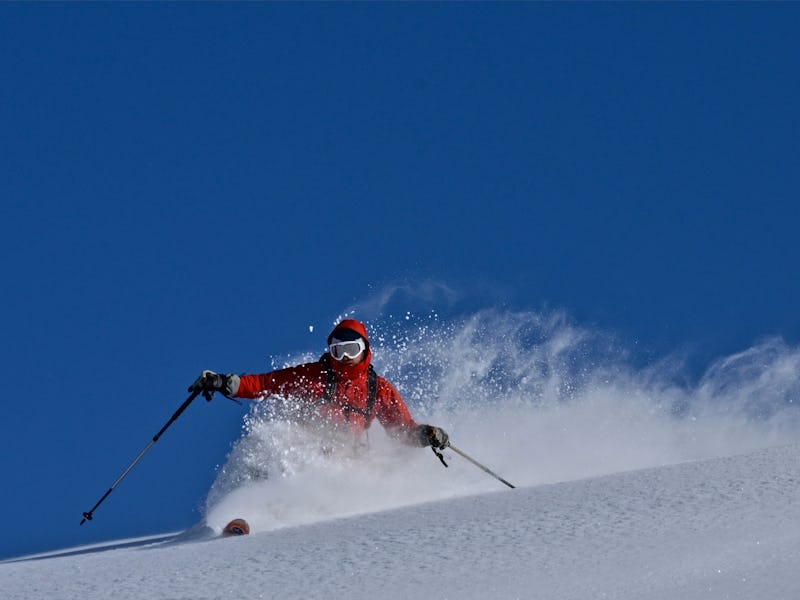Why Does Skiing Still Cost So Damn Much?
Climate change makes for shorter seasons, worse conditions, and ... higher prices?

Climate change be damned, the ski resort business is booming. Vail Resorts pulled in $1.4 billion in revenue in the 2015 fiscal year, a new peak. That gain was in spite of miserable weather at three of its 11 resorts — the ones in Lake Tahoe — and decreasing lift pass sales at others. So, what gives? Shouldn’t shitty snow result in discounts? Why is hitting the slopes still so damn expensive?
The reason is a mix of basic economics and smart business.
A bad snow season means fewer days of skiing, which is in essence a contraction of supply. Presumably, people will want to get their days of skiing in even in a bad year. If supply declines but demand stays the same, you can expect prices to go up.
The facts support this.
According to numbers reported by the Atlantic, skier visits went up 1.2 percent annually between 1998 and 2011, while the lift ticket price per visit went up 3.5 percent.
Here’s the other thing: The last major American ski resort opened in 1980. It’s not exactly easy for new entrants to come into the market to absorb increasing demand. A big part of that is because stricter environmental regulations implemented in in recent decades make it harder to gain community and political support for large development projects.
Do uncertain weather conditions make the ski resort business tough? Absolutely. Climate change in particular has the potential both to shorten seasons and leave resorts on the hook for mountains of expensive artificial snow. But the industry has gotten extraordinarily effective at hedging bets, so revenues now depend very little on snowfall.
A big part of that is selling season passes. Locking in that money early throws weather-related risk out the window. In recent years, season pass prices have gotten cheaper and cheaper, even as ticket-window prices have risen sharply. These are two sides of the same coin — the fewer ski days it takes to make a season pass worthwhile, the higher the incentive to buy one. Vail sells its Epic pass for $849, and it’s good for unlimited access to the company’s properties, as well as free skiing at dozens of international resorts. A single day adult ticket costs $135 at Vail mountain.
Season passes do more than lock in ticket revenues ahead of time. They also incentivize people to come to the mountain again and again. That might seem like a bad thing for the resort, if those visitors don’t spend additional money on lift tickets. But they are likely to spend money on other things — accommodations, meals, rentals, gear — each time they come. And in the North American model, at least, all of the hotels and services around the mountain belong to the same company as the mountain itself. Even when you aren’t spending on lift tickets, the resort benefits.
If you can’t commit to a pass, there are lots of other ways to save money on your powder turns. Buy in advance online, or get a package deal with accommodations and lift tickets together, and you’re likely to see big discounts. By forcing people to commit to days on the slope ahead of time, you can take weather conditions mostly out of the picture.
All of this allows ski resort to implement another standard business practice: differential pricing. Selling the same product to different people at different prices is great for your revenues if you can do it effectively. For the ski business, it means that locals who ski a lot will pay less per visit than out of towners with funds set aside for an expensive vacation.
Differential pricing means that resorts will always cater to the most wealthy clientele. Attracting those willing the spend the most requires that ski resorts maintain a high class image. But it also means that there will always be ski bums — folks without funds who love snow will continue to congregate in overcrowded housing and get jobs as lifties or hamburger flippers, shell out for the season ticket and make the most of the snow days available, at least until it all melts away.